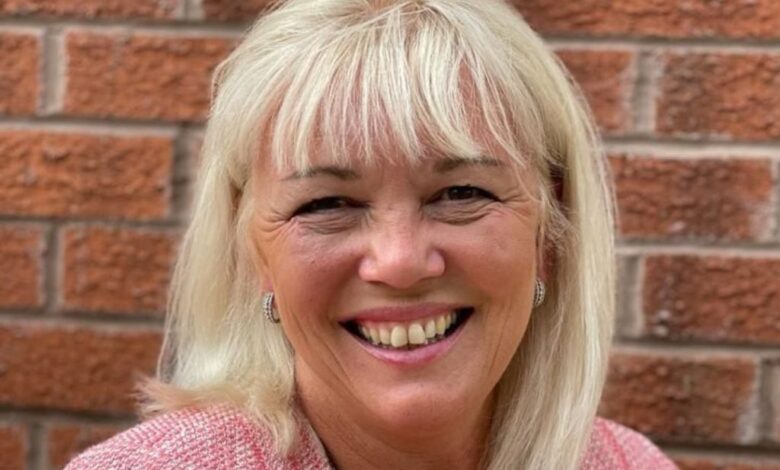Hospice nursing a ‘privilege and honour’, says chief nurse

The chief nurse of a children’s hospice is seeking to challenge perceptions of the specialty and encourage more nurses into it.
Catherine Randall, who joined Derian House Children’s Hospice in Lancashire as its clinical leader at the end of last year, said moving into palliative care had been a “privilege” and an “honour”, and urged nurses to consider a long career in an area of the profession she felt was often overlooked.
“We’re a happy place, but we also have very sad moments”
Catherine Randall
Ms Randall, who has worked in a variety of roles across nursing, midwifery and health visiting over the last 38 years, said she had been able to utilise all her clinical knowledge and experience in the hospice setting.
“Working here, I could bring all that strength and ability into the hospice to put the families at the heart of decision making,” said Ms Randall.
“Every moment counts, and every moment creates a memory for the family.
“The big thing is joy, happiness, love and tears; we do have tears, but we have a huge amount of joy, we help create those moments.”
Derian House looks after around 400 children and young people across Lancashire, South Cumbria and Greater Manchester.
It is currently expanding the size of its nursing workforce by recruiting 12 new members of staff. The organisation’s current recruitment drive, Ms Randall said, is open to nurses, nursing associates and clinical support workers.
She said the best part of hospice nursing was how much attention the nurse can spend on one patient or with one family: “We have a team of staff to work through a care plan and make sure that it can be delivered.
“Every child and family is different, and every care plan, every conversation and everything we put into place for that family is individual.
“In hospitals, you have time constraints. We have the time to spend with the families of these very ill children.”
Ms Randall said the hospice had also been working on improving the transition from children’s to adult services for its older patients.
“[We want to] make sure when that young adult leaves our care at 26 that the transition pathway has been put in place,” she added.
“Making sure everything that’s good in that person’s life doesn’t stop because they’re 26.”
She said that there were some other key differences to hospital nursing, such as the funding mechanisms.
“The biggest difference is that every single penny, every single pound is brought in from donations and from charitable events, and as a result it’s a real community,” she told Nurisng Times.
Ms Randall said she wanted to challenge what she said was a common notion: that hospice and other community nursing roles were only for people late in their careers or that there was no opportunity for progression.
“We have people who have been here for 25-30 years,” she said.
“We have opportunities for staff to really make a difference.”
Ms Randall said her current role was the “most privileged and most humbling” one she had taken in her career spanning almost four decades.
“We’re a happy place, but we also have very sad moments when we look after children at the most horrid time of life,” she added.
“To look after a child and their family at the end of their life is a real honour and a privilege.”






